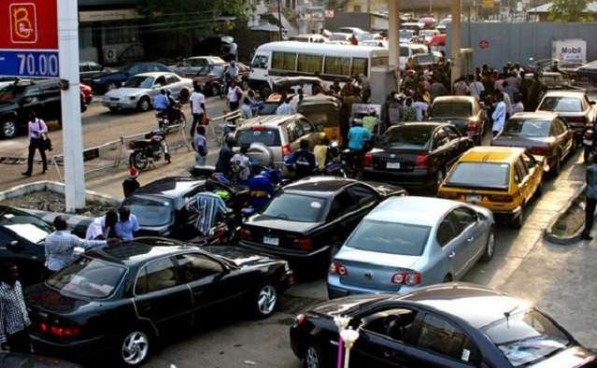Over ₦3.5 trillion spent yearly by businesses, homes on fuel for power

As indications emerged recently that due to irregular supply of public electricity, about ₦3.5 trillion ($21.9 billion) is spent yearly by businesses, families and others in Nigeria to buy fuel for power generation; the country’s electricity consumption per capital has been adjudged to be the lowest in Africa, according to a report by Agusto & Co.
Disclosing this at the recent 2016 Huawei Connect Conference in Shanghai, China, the Business Leader (Distribution), Sahara Group, the firm with majority stakes in Ikeja Electricity Distribution Company, Rotimi Onanuga, said in that addition to the challenge, the power infrastructure in Nigeria is aging.
Onanuga lamented that despite the rich energy reserves, the enactment of the Power Reform Act and sustained government investments; Nigeria’s power supply still faces serious challenges.
He said: “Yet, due to the unstable power supply, manufacturing enterprises, trade enterprises and common families spend an annual average of ₦3.5 trillion to purchase diesel and gasoline for power generation.”
Onanuga said it was regrettable that the country is experiencing such a crisis, “given that it is the most populous country in Africa, boasting of a population of 173 million people, which accounts for 16 per cent of the total population of Africa.”
According to him, there are currently 5, 172, 979 power consumers in Nigeria, among which nearly 54.15 per cent (2.8 million) have no installed meters. He revealed that the IKEDC had been able to distribute 61, 000 meters within its area of coverage, but stated that the target is to distribute at least 300, 000 meters by April 2017.
According to the report by Agusto & Co., the country’s electricity consumption per capital, measured by the World Bank at 149 KWH, is low due to self generation by most of the citizenry which is often not captured.
“Typically, Nigerians resort to self-generation of electricity; about 81 per cent of the national population (or 130 million Nigerians) generate electricity through alternative sources to compensate for irregular power supply, said Executive Director, Agusto & Co., Yinka Adelekan said while commenting on the report.
She also said that with an urbanisation rate of 3.8 per cent, Nigeria’s electricity demand is projected to grow from 15,730 mega watts (MW) to 88,282MW by 2020.
Adelekan added that vast opportunities exist in the power sector for intending investors, given the wide supply-demand gap and the country’s huge population.
She disclosed that as at March 2014, electricity supply from the national grid stood at 4,306MW, far below the estimated demand of 12,800MW.
This, Adelekan added, implies that currently Nigeria is only generating about 34 per cent of the country’s requirements, and this provides an enormous potential for new and existing players in the Industry.
She stated that the demand for electricity in Nigeria has been upheld by strong economic growth and increasing urbanisation.
“Nigeria’s electricity generation capacity has fluctuated between 3,500MW and 4,400MW over the last two years, due in part to shortage of gas supply (a significant number of gas pipelines were vandalized across the country, which disrupted gas supply to power plants).
Sunday Telegraph learnt that the daily average of 3,307Mwh/hour for the month of January 2018.
Other factors contributing to the country’s low electricity generation output is the deplorable condition of some of the PHCN successor generation and distribution companies, as well as high transmission/distribution losses and shortfalls in gas supply.
It is against this backdrop that the recent World Bank approved an International Development Association (IDA) Scale Up Facility Credit in the total amount of $486 million equivalent for rehabilitation and upgrading of electricity transmission substations and lines, has been said to be timely.
This is because it is believed that the investments under the Nigeria Electricity Transmission Project will increase the power transfer capacity of the transmission network and enable distribution companies supply consumers with additional power.
“Together with other investments and policy measures, the project will contribute to ensuring adequate and reliable electricity supply that is necessary for Nigeria’s continued economic development. It will also support private sector participation, capacity development and better governance in Transmission Company of Nigeria and sector institutions,” the World Bank said in a recent statement.
“The Nigeria Electricity Transmission Project will help address key bottlenecks in the transmission network and improve access to affordable and reliable electricity service to citizens,” said Rachid Benmessaoud, World Bank Country Director for Nigeria.
The World Bank had earlier disclosed that its contribution to the Nigeria’s national electrification projects in support of the energy sector has grown in portfolio to over $3billion.
The Bank said it is contributing $350million to these projects of which $150million is channelled to mini-grids, as part of its support to boosting access to electricity.
The Bank also stressed the need for the Federal Government to leverage on the support of development partners, and the private sector experience to scale up mini grids in efforts to provide electricity to the over 80 million Nigerians still without access to electricity.
The World Bank Country Director, Rachid Benmessaoud, who spoke while during a presentation on: “Overview of off-grid opportunities and challenges in Nigeria,” at a week long action learning event on “Up-scaling mini grids for low-cost and timely access to electricity.”
Benmessaoud, who was represented by a World Bank Expert, Mac Cosgrove-Davis, noted that in addition to the 80 million that still lacked access to electricity, millions more lack access to sustainable electricity in Nigeria
This came as the Minister of Power, Works and Housing, Babatunde Fashola said: “The Federal Government is committed to addressing the challenges in the public-owned transmission network and the financing being provided by the World Bank under the Nigeria Electricity Transmission Project power sector underlines this commitment. The Federal Government anticipates that private sector financing in the privately-owned segments of the value-chain will complement the government’s efforts in bringing better quality service to citizens.”









0 Comments